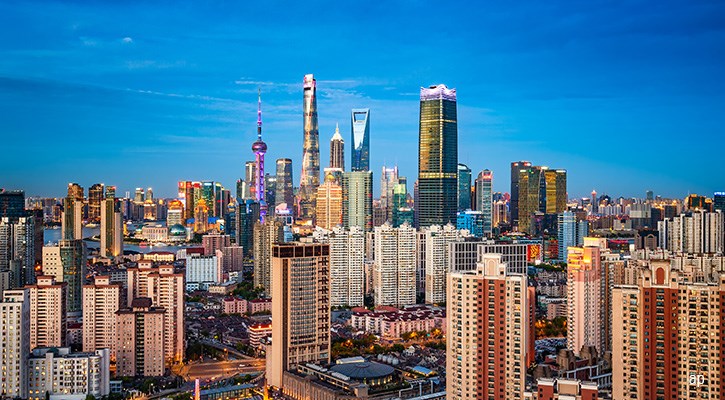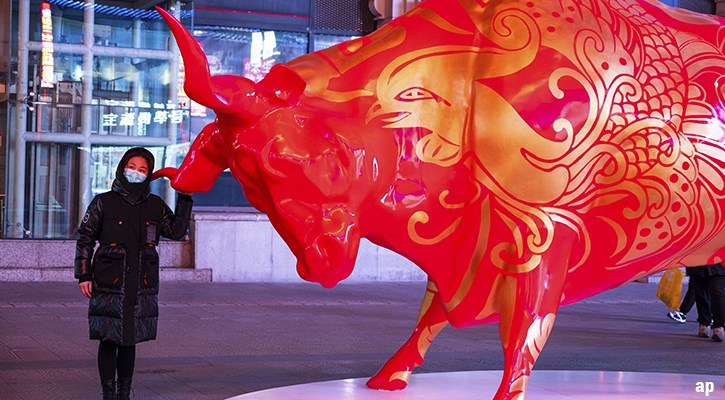
From Covid to trade wars, China has been the centre of global events in recent years, but has also been one of the best performing stock markets in 2020. Whether this can continue in 2021 is hard to predict, but we look at the key themes for next year and beyond.
Trump, Trade and Covid
A new incumbent in the White House from January next year may not be enough to bring an end to the trade war, but a President Joe Biden could bring a different approach to US-China relations. Daniel Grana, portfolio manager at Janus Henderson, says investors should expect to see “fewer fireworks” between the two nations than in the Trump era, but that negotiations will take a lot longer as Biden works seeks to build a global consensus on trade.
Asian fund managers think the coronavirus and the Trump era may have accelerated China’s increasing self-reliance and focus on Asian trading partners like Vietnam, South Korea and Taiwan. The recently signed Regional Comprehensive Economic Partnership (RCEP), which brings together China and nine other Asia-Pacific countries in the world’s largest free trade zone, is expected to tilt the balance of global power further east. In terms of China’s domestic economy, the country’s Five Year Plan has put an emphasis on innovation and technology that is expected to benefit Chinese companies.
Lessons from Ant?
Ant Group’s plans to float in Shanghai and Hong Kong, rather than New York, was meant to demonstrate the Asia-Pacific region’s growing power. It was expected to be the largest stock market float of all time, so the last-minute decision to pull it after Beijing intervened, took global investors by surprise.
Morningstar analyst Iris Tan says: "Until Ant Group decides on how it intends to structure the holding of its lending business, it is difficult to ascertain the impact to Ant’s valuation. Regardless, the increased capital requirements has two potentially negative impacts to valuation: 1) raises the need to ensure adequate capital or the equity portion of the business and this could limit the growth rate for this business; and 2) suggests that Ant’s lending business should be valued more akin to banks rather than solely as a technology company."
But Pictet portfolio manager Avo Ora thinks the Ant saga is an outlier rather than laying the foundation for future clashes between China’s government and companies that want to list. He thinks that China’s economic plan envisages a key role for companies like Ant in supporting SMEs and providing cheap capital.
But Ora also believes China is trying to shift the perception that it is an environmental laggard by committing to carbon neutrality by 2060 and for carbon emissions to peak by 2030.
Looking Beyond Tech
Technolgy giants like Alibaba and Tencent show China’s strength in e-commerce innovation. But other sectors are also showing signs of promise. Chetan Seghal, lead manager of te Templeton Emerging Markets Investment Trust says the Chinese government is making affordable healthcare a priority and competition is increasing in this space.
Winston Ke, portfolio manager at FSSA (formerly First State), expects online shopping to continue growing in 2021 with millennials leading the charge: “Young and highly educated with steady jobs, on the whole this cohort has significant disposable income – particularly those still living at home and without family responsibilities of their own. Having grown up with technology at their fingertips, they are much more likely to purchase online than via traditional channels.”
Connected to this e-commerce boom is the growth of express parcel delivery – “We believe the sheer volume and growth potential of China’s express delivery industry presents a unique opportunity for investors,” he adds, citing the 60 billion-plus parcels delivered every year in China and small number of operators in this space.
A Growing Slice of the Pie
China is by far the biggest country in the MSCI Emerging Markets Index, with a weighting of more than 40%. Devan Kaloo, head of global emerging markets at Aberdeen Standard, expects this weighting to grow further in the coming years. This matters if you are one of the increasing number of investors buying passive emerging markets funds, because a higher weighting for China in the index means more flows and more investor capital looking for a home.
But the exposure to China can vary substantially in active emerging market funds, so it’s worth checking to see if they meet your investment goals; if you want more or less China exposure than the benchmark, for example. Asia funds can also have a heavy weighting towards China.
Whatever happens in 2021, after this year's strong run, China equities will no longer be cheap. "Markets have done very well year-to-date and you need to pay up if you want to get access to that," says Kaloo.




















